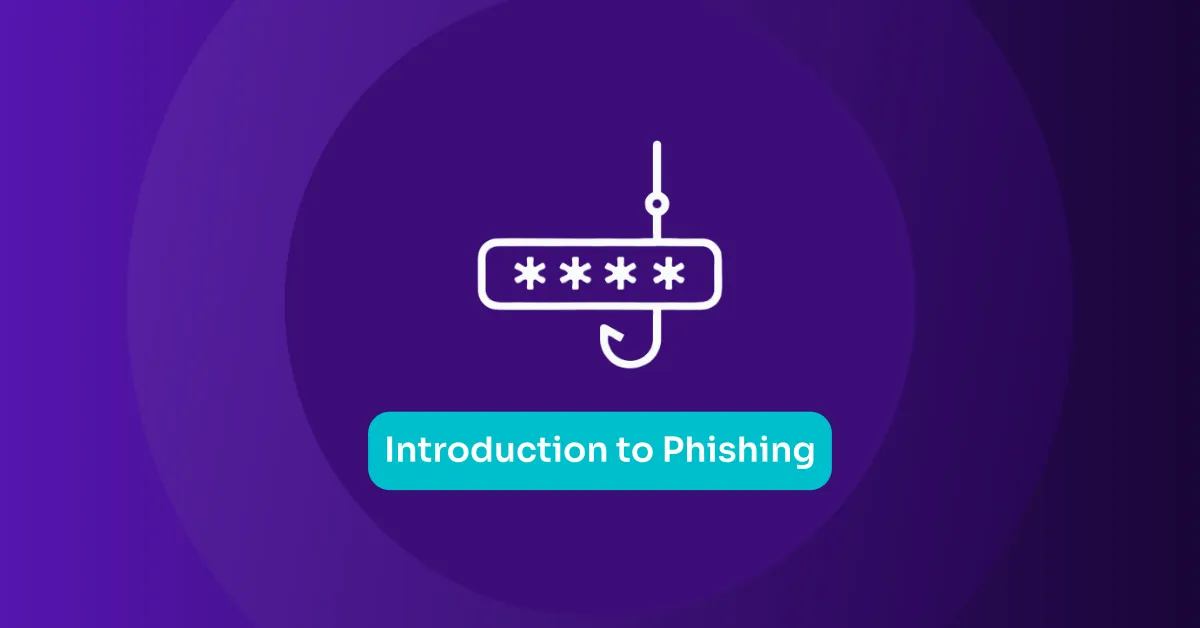
Sep 9, 2024
Building Cyber Resilience: How Continuous Training Fortifies Organizational Security
Explore how continuous cybersecurity training helps organizations fight cyber threats and become and remain resilient.
Cyber resilience is critical for organizations today. It refers to the ability of a business to maintain operations and recover quickly from cyberattacks. This means understanding that breaches are not a matter of “if” but “when.” In 2022, the average cost of a data breach reached $4.35 million globally, according to IBM’s Cost of a Data Breach Report, and the frequency of attacks continues to rise. Despite heavy investments in security tools, a key factor often overlooked is continuous training for cybersecurity professionals. Continuous training ensures organizations are prepared, adaptive, and ready to respond to evolving threats.
Cyber resilience goes beyond traditional cybersecurity. It’s about creating a security posture that helps organizations recover quickly from an attack, reducing financial losses and downtime. This is vital when considering that a study by Accenture found the average number of security breaches per company increased by 31% between 2020 and 2021, it takes an average of 277 days to identify and contain a data breach, according to IBM. The more takes to respond, the more expensive and damaging the breach becomes.
In this context, cybersecurity professionals need more than just the tools to protect against these attacks. They need regular training to stay ahead of the threat landscape, which changes rapidly. According to Fortinet’s 2023 Cybersecurity Skills Gap report, 68% of organizations reported that they suffered at least one breach that they could attribute to a lack of skills or training. This statistic highlights the importance of having well-trained teams that are consistently updating their skills and knowledge and helping organizations achieve cyber workforce resilience.
Speed is essential in responding to cybersecurity threats. When employees are consistently trained, they can identify and react to threats faster. The Ponemon Institute found that organizations that reduced their mean time to identify and contain a breach from over 200 days to under 100 days saved an average of $1.12 million. Continuous training arms with up-to-date knowledge, improving their response time and reducing the financial impact of breaches.
Fortinet’s Cybersecurity Skills Gap report found that 84% of organizations experiencing one or more breaches attributed it directly to the cybersecurity skills shortage within their teams. This indicates that regular, advanced training programs focused on developing the skills of cybersecurity professionals can significantly reduce the risk of breaches. By continuously upskilling professionals in areas like threat detection, response, and vulnerability management, organizations can close these critical gaps and strengthen their overall security posture.
With a significant gap in the cybersecurity workforce, many organizations struggle to fill critical positions. According to (ISC)²’s Cybersecurity Workforce Study, the global cybersecurity workforce gap stood at 3.4 million in 2022. Upskilling existing IT professionals into cybersecurity roles offers a practical solution to fill these hard-to-hire positions. At the same time, reskilling current cybersecurity professionals to specialize in advanced roles ensures they remain equipped to handle increasingly sophisticated threats. By focusing on continuous training, organizations can address workforce shortages while enhancing their teams’ ability to respond to emerging security challenges.
Employee retention is another significant benefit of continuous training. The same Fortinet report found that 87% of organizations recognize that providing continuous learning opportunities is a key factor in retaining top cybersecurity talent. Offering structured development programs not only helps professionals stay ahead in their careers but also fosters loyalty and job satisfaction. Continuous training demonstrates a commitment to professional growth, helping organizations keep their best talent and reduce turnover in a competitive job market.
Regulatory fines for non-compliance after a data breach can be crippling. GDPR violations, for instance, can lead to fines of up to €20 million or 4% of an organization’s global revenue. Ensuring cybersecurity compliance requires that organizations not only implement the right technologies but also continuously train their staff to stay aligned with ever-evolving regulations and best practices. Continuous training platform helps cybersecurity professionals maintain compliance with industry standards and regulations, minimizing the risk of fines and penalties. As highlighted in our article on cybersecurity compliance, staying compliant is an ongoing effort, and continuous education plays a key role in avoiding costly breaches and non-compliance issues.
Organizations that prioritize training are already seeing the benefits. A study from ISACA showed that 82% of businesses with continuous cybersecurity education programs reported a significant improvement in their security posture, leading to a lower incident rate and faster recovery times. These companies are also more likely to maintain compliance with data protection regulations, minimizing fines and reputational damage.
One notable example is Capital One. After a major data breach in 2019, the company revamped its security protocols, implementing more frequent training programs for its cybersecurity teams. These efforts have helped them prevent similar incidents and recover more quickly when they face new threats. By investing in continuous training, Capital One has reduced its exposure to risks and improved its overall resilience to cyber threats.
At OffSec, we believe that building resilient organizations starts with a highly skilled, adaptable workforce. By focusing on continuous development, we enable organizations to stay ahead of emerging threats, not just those they’ve encountered before.
Our training programs cater to various levels of expertise. From foundational courses like SEC-100 to blue team training with SOC-200, and advanced red team training such as PEN-300 and EXP-312, OffSec covers a wide spectrum of cybersecurity disciplines. These courses support the development of roles from SOC Analysts to seasoned Red Team Operators, enabling organizations to create specialized career paths for their cybersecurity professionals.
OffSec’s Enterprise Cyber Range provides a scalable, customizable platform for organizations to train their teams in real-world environments. This range simulates both advanced attack and defense scenarios, giving security teams the ability to hone their skills in realistic threat landscapes. The platform is designed to replicate modern cyberattack techniques, ensuring that cybersecurity professionals are ready to tackle complex incidents in diverse environments. By integrating this with continuous development, cybersecurity professionals can apply what they learn throughout their entire learning process, reinforcing skills gained from foundational courses through advanced training, and ensuring they remain adaptable and prepared for evolving threats.
By offering continuous training paths across both blue and red team disciplines OffSec’s platform ensures that teams remain agile and well-prepared. Our approach makes it possible to upskill new talent while keeping senior staff current on the latest offensive and defensive tactics, providing a scalable solution that evolves alongside the threat landscape.
Cyber resilience depends on the ability of an organization to adapt and recover from attacks. Continuous training is essential to achieving this. It helps organizations stay ahead of new threats, improve incident response, mitigate insider risks, and comply with evolving regulations. By investing in the continuous development of their cybersecurity teams, businesses can significantly reduce the costs and damage associated with cyberattacks.
In a world where the average cost of a data breach continues to rise, organizations that embrace continuous training are positioning themselves to not just survive cyber incidents but thrive through them. Regular training keeps cybersecurity professionals sharp, adaptable, and capable of protecting an organization’s most critical assets. Simply put, the path to cyber resilience is paved with ongoing education.
To explore OffSec’s full training library, including our range of courses, certifications and Learning Paths, visit our Course and certifications or Learning Paths page. Equip your security team with the tools and knowledge needed to stay ahead of threats and ensure your organization remains resilient.
Stay in the know: Become an OffSec Insider
Get the latest updates about resources, events & promotions from OffSec!
Latest from OffSec

Research & Tutorials
CVE-2024-12029 – InvokeAI Deserialization of Untrusted Data vulnerability
CVE-2024-12029: A critical deserialization vulnerability in InvokeAI’s /api/v2/models/install endpoint allows remote code execution via malicious model files. Exploit risk for AI art servers.
Jul 17, 2025
0
Research & Tutorials
What is Phishing? Introduction to Phishing Demo (for Beginners)
Learn how phishing attacks work and how to spot them. Watch OffSec’s animated video to protect yourself from scams, spoofed sites, and social engineering.
Jul 15, 2025
2 min read

Research & Tutorials
CVE-2025-27636 – Remote Code Execution in Apache Camel via Case-Sensitive Header Filtering Bypass
Discover the critical Apache Camel vulnerability (CVE-2025-27636) that allows remote code execution via case-sensitive HTTP header manipulation in the exec component. Learn how attackers exploit this flaw and how to mitigate it.
Jul 10, 2025
2 min read